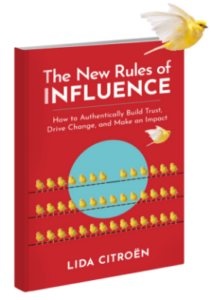Some of you might have heard recently of terms such as “New World of Work,” the “Great Resignation,” and/or the “Great Reshuffle.” Every day, it seems like we hear more and more about this new shift companies and professionals are experiencing. But what does that mean for you?

All of that means New Opportunities! With this “Great Resignation” and “Great Reshuffle,” many companies are hiring right now, and also, many professionals are looking for new opportunities, higher positions, and/or pivoting.
If you find yourself wondering what to do right now and how to achieve success in your future, it is time for some reflection and analysis. Right now is a great time for you to sit down and strategically think about the future of your career. To analyze where you are and where do you want to go. To create goals that align with your values, skills, and desired legacy.
You are unique. You have a set of skills and talents that makes you great. But you have to be clear on your value. You need to be an expert on yourself so that you can stand out from your competition. You need to be an expert on your values and what you truly want to achieve in your career to make your next professional move accurately.
To create a strategy that helps you navigate this “new world of work” era we are living in, you’ll need to:
1. Define your desired legacy.
There is a great quote from Lewis Carroll, author of Alice in Wonderland that says,
“Would you tell me, please, which way I ought to go from here?”
“That depends a good deal on where you want to get to.”
“I don’t much care where –”
“Then it doesn’t matter which way you go.”
You need to be clear on where you want to go to find the road to get there. Ask yourself:
– When I’m gone, how do I want to be remembered?
– What do I want to be remembered for?
– What impact do I want to leave behind?
2. Request feedback, and be open to it when you receive it.
You need to understand how others perceive you and where you are standing right now with your brand and reputation.
One simple way to solicit valuable feedback is to send an email to clients, colleagues, peers, or other staff stating asking how they perceive your personal brand. Tell them you’re working to understand your current brand, and their input would provide great insight. Here are some simple brand evaluation questions to ask:
– Do I have a personal brand, and if so, what is that brand?
– If you referred me to someone, how would you introduce me?
– When you think of me, what special traits do you believe I have?
Whenever I receive a referral, the first question I ask is, “what were you told about me?” I need to understand how my perception is being formed in the marketplace. What are people saying about my brand? How are they introducing me? So the question “would you refer me to somebody else, and if so, how would you introduce me?” provides critical insight into your brand. “What do you see as my competitive advantage?” This question might uncover gems and traits we didn’t even know we had. Then, follow up with the question, “How do you know that? Where do I get the credibility for that trait?”
3. Make an inventory of your experience, skills, and talents.
Review your resume, analyze your professional experience, and make an inventory of all the skills and talents you possess. Contrast them against the feedback received to understand better if you didn’t account for some traits and skills.
4. Create your personal brand strategy.
No matter your current job title, you’ll need a strategy to advance where you want to go. As you have heard me say before, personal branding is key to your career success. Personal branding is the roadmap for you to achieve that success. It is the tool that you were looking for to advance professionally.
In my new book, “Control the Narrative: The Executive’s Guide to Building, Pivoting and Repairing Your Reputation,” I offer all the insights, steps, and tools for you to create your personal brand and reputation strategy and drive it with success.
After you put in your work and effort on all of these, with your personal brand game plan in hand, you can set out to connect with those who’ll afford you the opportunities you want. You’ll be more intentional and strategic about where and how you show up. And, you’ll present yourself with more clarity and confidence, thus ensuring your work is more in alignment with the values and legacy you strive to ensure.


